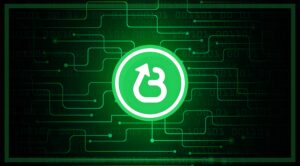JP Morgan’s Chase retail banking division offers good insights into the pros and cons of joint bank accounts. Among the cons of a joint bank account it highlights how disagreements or deteriorations in a relationship can cause problems for their holders.
When choosing a joint bank account with your partner it is usually during a positive period of a relationship. The expectation is that this relationship is strong, and it represents a commitment to stay together for a long period of time, if not for life. But you may have also heard that you’re more likely to get divorced than switch banks. Divorces are already a messy business, but joint bank accounts can make things more complicated. How can you determine how much of the money in the account somebody is entitled to? Do joint bank accounts increase the risk of abuse?
Economic & financial abuse are kinds of domestic abuse that we don't like to think about much.
— Dr Emma Katz (@DrEmmaKatz) April 25, 2023
These kinds of abuse are cold, calculated, tactical, continuous.
They don't fit our DA myths: the incident of violence, the lost temper, the abuser who had a bad childhood, etc.
What is Financial Abuse?
Financial abuse is a form of economic abuse that can affect almost anyone. It is a form of domestic abuse in which somebody has control over another person’s income, spending, assets, or access to cash.
Elderly people are likely to be victims of financial abuse, but it also affects spouses, adult children, and anyone who is financially dependent or has somebody managing their assets.
Financial abuse is a wider form of economic abuse, which can include stopping someone from going to work, college or university, causing a person to lose out on benefits, and controlling their access to essentials like food, clothing, or transport. Ultimately, both financial and economic abuse are forms of control which are contingent on financial dependency, or control.
In cases of domestic abuse, this economic abuse makes it difficult or impossible for the victim to gain the necessary means to leave the relationship.
I didn’t realize I was being financially abused. I didn’t realize because I didn’t know what it was.
— Caroline 🦋 (@grow_your_wings) January 26, 2020
Every time I questioned him about finances he’d stonewall me.
Some forms of #financial abuse are more subtle. Watch out for these red flags. #NarcissisticAbuse pic.twitter.com/lDMnUic7fj
What Happens to the Account During a Divorce?
Once a bank is notified that a couple with a joint account is splitting up, they will likely make some recommendations.
The bank might offer to convert the account into one where both parties have to sign-off on any financial transactions related to the account. Or, they could offer to freeze the account, in which case both parties must agree how much of the funds they will require or are entitled to beforehand.
In cases of financial abuse, both could raise issues. If each party has to agree to financial transactions, and one party is abusive or has greater financial power, the victim will naturally struggle to become independent. It would be easier for an abuser to coerce their victim with this kind of account by making it difficult for them to become independent.
Similarly, a frozen account raises some issues. It would also rely on a certain amount cooperation between partners. In most cases, this shouldn’t be a problem. But a victim of financial abuse might find that they are unable to receive the funds necessary to live an independent life, or pay for adequate representation in court. Additionally, both partners must agree to unfreeze the account, which can create further complications
Ultimately, joint bank accounts can diminish the independence of a person who was, in marriage or partnership, financially dependent. They can make it easier for abusers to coerce their dependent partners into financial arrangements that are unfair, or downright unsustainable for the victim.
Can Legislation Prevent Financial Abuse?
While there are provisions in place to challenge financial abuse in the U.S., these laws can be hard to administer. Additionally, most of them are directed towards preventing financial abuse of elders, which leaves other financially dependent people with less protections.
In the U.S., the state-run Adult Protective Services exists to protect elderly people and vulnerable adults from financial abuse. The Elder Justice Act, as part of the Affordable Care Act, provides a legal framework for tackling financial abuse, as well as resources for training professionals investigating cases.
Similarly, state-specific guardian laws can prevent the exploitation of people found to be incapable of making financial decisions for themselves.
Some federal laws, such as the Consumer Financial Protection Act, help the CFPB (Consumer Finance Protection Bureau) administer protections for victims. But in most cases, this is related to predatory behaviour by institutions towards vulnerable people.
A common theme here, however, is that there are few provisions in place to prevent abuse within a marriage or a domestic partnership. In these cases, the problem is further complicated by joint bank accounts.
As financial exploitation of seniors & other vulnerable adults increases nationwide, we are making it easier than ever for investment professionals to comply with their statutory responsibility to report it. https://t.co/C3ybUodu1S pic.twitter.com/OwXi41kPCF
— Attorney General Matt Platkin (@NewJerseyOAG) March 26, 2025
Do Joint Bank Accounts Increase the Risk of Financial Abuse?
While Joint bank accounts in themselves are not necessarily cause for concern, they are something that can be leveraged by abusers to assert control over their victims. These accounts can be convenient, but they ultimately depend on trust. When this trust is broken, the risk of financial abuse can certainly increase.
For one thing, both partners having access to the funds on which they are each dependent would allow one party to drain the funds for their own gain. Equally, the joint account incurs the risk of one person racking up debt, to which the other will also be financially tied.
With a joint bank account, abusers can monitor their victim’s spending and behaviours. It can become very difficult for victims to seek the help they need, or establish any kind of independence from their partners.
According to Manchester Women’s Aid, 95% percent of domestic abuse cases involve economic abuse, with other sources citing 99% percent for the same study. Around 1 in 4 women suffer domestic abuse, meaning that financial abuse in relationships and marriages are concerningly common.
On the other hand, in many cases of domestic abuse the perpetrators will, one way or another, gain access to their victim’s bank accounts, whether it is joint or not. But the nature of joint bank accounts makes it much easier to perpetrate. And it can make it more difficult for a victim to realise that the financial aspect of their relationship is sliding towards abuse, rendering them aware of the crime only after it’s too late.
The Bottom Line
While not the sole cause, joint bank accounts can encourage financial abuse, allowing perpetrators to access the cash flow and spending habits of their victims.
Ultimately, there needs to be greater societal support for victims of financial abuse. Support services and stronger legislative actions can be the difference between a victim leaving an abusive relationship and suffering even longer due to a lack of independence.
And the effects of financial abuse do not always end with the relationship. People in very financially stable conditions can, as a result of abuse, lose large swathes of their assets and wealth. Even when independence is reclaimed by the victims, the after effects can be devastating.
#FinancialAbuse #JointBankAccounts #DomesticAbuse #EconomicAbuse #FinancialIndependence #BankingSafety
Author: Sean Maguire
See Also:
Is the metaverse safe for women and children? | Disruption Banking

















